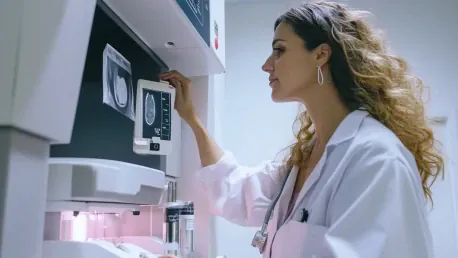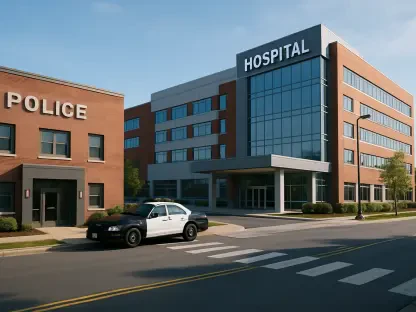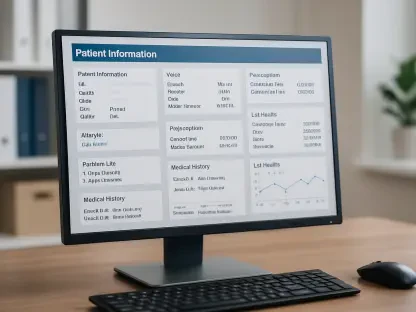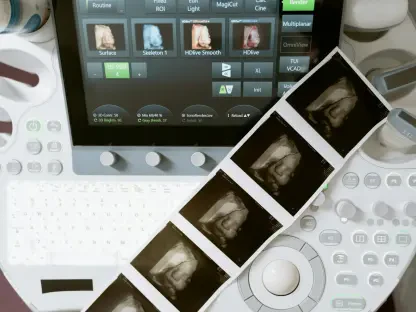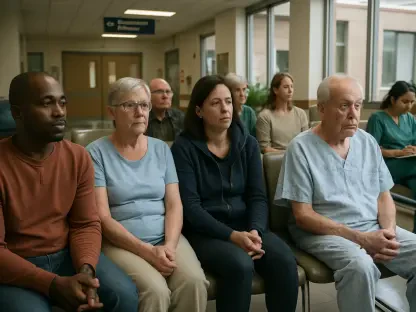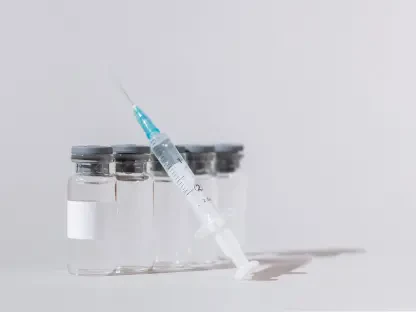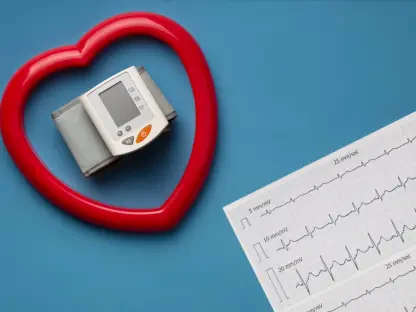The pressing issue of Medicare funding shortfalls is threatening the viability of breast cancer diagnostic services across the country. These shortfalls have escalated to the point that both private healthcare providers and specialists are calling for immediate government intervention to ensure they can continue to offer critical services to patients. Such intervention is crucial not only for sustaining the quality of care but also for ensuring that early detection and timely treatment of breast cancer remain accessible to all.
Inadequate Medicare Rebates
Rising Costs and Stagnant Rebates
At the core of this challenge lies the inadequacy of Medicare rebates for breast cancer diagnostics. These rebates have not kept pace with the rising costs of medical services and advanced diagnostic technologies. This disparity has placed a significant financial burden on healthcare providers, many of whom are struggling to maintain their operations. The cost of modern diagnostic equipment, skilled personnel, and other essential resources has surged, while Medicare rebates have remained relatively stagnant. Consequently, providers are often forced to shoulder the added expenses, which can be unsustainable in the long run.
The financial pressures resulting from the inadequate rebates have far-reaching implications for patient care. Healthcare providers may be compelled to make difficult choices, such as reducing the number of diagnostic tests offered or limiting the scope of services provided. These decisions, although necessary for financial survival, can impede the early detection and accurate diagnosis of breast cancer. The ultimate victims of these shortfalls are the patients, who may experience delays in receiving timely and crucial diagnostic services. As healthcare providers grapple with these challenges, the pressing need for an overhaul of the Medicare rebate system becomes increasingly evident.
Impact on Diagnostic Services
The shortfall affects various aspects of breast cancer diagnostics, including mammograms, ultrasounds, biopsies, and other imaging modalities that are essential for early detection and accurate diagnosis. The financial strain on providers is palpable as they strive to maintain the high standards of care required for effective diagnostics. Mammograms and ultrasounds, pivotal in the early stages of breast cancer detection, are particularly impacted by the rising costs that are not adequately compensated by Medicare rebates. Providers often find themselves at a crossroads, having to balance fiscal responsibility with the imperative to deliver quality care.
As financial constraints tighten, the quality of breast cancer diagnostics could be compromised. Advanced imaging technologies, which are crucial for precise and early detection, become harder to acquire and maintain. Skilled specialists, who play a vital role in interpreting diagnostic results and guiding treatment plans, are also affected by the financial turbulence. The repercussions of reduced quality diagnostics are severe, potentially leading to misdiagnoses, delayed treatments, and poorer patient outcomes. The healthcare community is clear: without significant policy changes, the future of breast cancer diagnostic services is at risk.
Financial Strain on Providers and Specialists
Balancing Patient Care with Financial Viability
A consensus among healthcare providers is clear: the current Medicare rebates are insufficient. This inadequacy is forcing many to absorb the extra costs or consider scaling back services, both of which have dire consequences for patient care. The rebates simply do not cover the expenses associated with modern breast cancer diagnostics, such as advanced imaging technologies and specialized personnel. Many providers are subsidizing the shortfall from their resources, a practice that is neither sustainable nor equitable. The financial strain puts immense pressure on healthcare providers to make tough decisions that could negatively impact patient care.
The balance between patient care and financial viability grows increasingly tenuous as providers grapple with these economic challenges. Scaling back services could mean fewer diagnostic tests, longer wait times, and potentially reduced access to critical diagnostic tools. This is particularly concerning given the importance of timely and accurate diagnosis in the treatment of breast cancer. Delays in diagnosis can lead to later-stage detections, which are more difficult and expensive to treat. The healthcare sector calls for urgent action to revise Medicare rebates to ensure healthcare providers can continue delivering essential, high-quality diagnostic services.
Sustainability of Practices
Specialists, including oncologists and radiologists, have voiced their concerns about the sustainability of their practices under the current funding model. These professionals play a crucial role in the breast cancer diagnostic pathway, and their financial stability is paramount to maintaining accessible and high-quality diagnostic services. As costs soar and rebates lag, many specialists face the unfortunate possibility of closing or reducing their practices. This potential reduction in services is detrimental to a system already stretched thin and raises alarms about the future availability of expertly conducted diagnostics.
The challenges faced by specialists underscore a broader issue within the healthcare system. The sustainability of their practices is not just about keeping their doors open but also about maintaining the quality and timeliness of care that patients rely on. Oncologists and radiologists are essential in interpreting diagnostic images, guiding treatment options, and providing comprehensive care plans. As the financial environment becomes increasingly hostile, these specialists’ ability to continue offering these vital services is jeopardized. The call for a reevaluation of Medicare rebates is also a plea to preserve the critical roles these professionals claim in patient care.
Impact on Patients
Delays and Increased Costs
Patients are also feeling the effects. The financial pressures on diagnostic services can lead to longer waiting times for appointments, reduced availability of certain diagnostic tests, and potentially higher out-of-pocket costs for patients. This is particularly concerning as timely and accurate diagnosis is crucial for effective treatment and positive patient outcomes. For many patients, especially those with limited financial resources, the increased cost and reduced availability of diagnostic services present significant barriers to accessing necessary care. Early detection, which is essential for better prognoses, becomes a luxury that not everyone can afford.
The impact on patients is multifaceted and extends beyond just financial concerns. Delays in obtaining diagnostic tests can lead to later-stage detections, resulting in more aggressive and costly treatments. This, in turn, affects patients’ overall quality of life and their chances of successful recovery. Moreover, the psychological toll of waiting for diagnostic services can be immense. Patients may experience heightened anxiety and stress, knowing that timely diagnosis and treatment could be critical to their health outcomes. The strain on diagnostic services, therefore, has both direct and indirect repercussions on patients’ lives.
Health Disparities
Additionally, the strain on diagnostic services could contribute to wider health disparities. Patients in rural or underserved areas may be disproportionately affected, as these regions often have fewer healthcare resources to begin with. The financial difficulties faced by providers could exacerbate existing inequalities in access to breast cancer diagnostics and care. Rural healthcare facilities, already stretched thin, may find it even more challenging to offer advanced diagnostic services necessary for early breast cancer detection.
The potential widening of health disparities is a grave concern for the healthcare community. Patients in underserved areas, particularly those who already face numerous barriers to care, could see an even steeper decline in access to crucial diagnostic tools. This exacerbates existing inequities and undermines efforts to provide equitable healthcare for all. Addressing these disparities requires targeted policies that acknowledge and mitigate the unique challenges faced by rural and underserved populations. It is imperative that any revisions to Medicare rebate structures consider these broader societal impacts, ensuring that all patients, regardless of geographic location or socioeconomic status, have access to lifesaving breast cancer diagnostics.
Call for Government Intervention
Need for Policy Changes
The article underscores the need for a comprehensive review and overhaul of the Medicare rebate structure. This would involve adjusting the rebates to reflect the actual costs of providing breast cancer diagnostics and ensuring that providers can sustain their services without compromising on quality. The call for government intervention is loud and clear, with the hope that policymakers will recognize the urgency and importance of this issue. A reevaluation of the current rebate system is not just a financial imperative but a moral one, ensuring that all patients have equitable access to timely and accurate breast cancer diagnostics.
Policy changes must be informed by the realities faced by healthcare providers and the life-or-death consequences for patients. These changes should be aimed at creating a sustainable financial environment that allows providers to continue offering high-quality diagnostic services without undue financial strain. By aligning Medicare rebates with the actual costs of healthcare delivery, policymakers can help safeguard the viability of breast cancer diagnostics and, by extension, the health and well-being of countless patients. This comprehensive approach is essential for maintaining the integrity and effectiveness of breast cancer care nationwide.
Aligning Funding with Realities
The critical issue of Medicare funding shortfalls is jeopardizing the availability of breast cancer diagnostic services nationwide. These financial gaps have intensified, leading both private healthcare providers and specialists to call for immediate government intervention. Without such support, these providers may struggle to continue offering essential services to patients. Government action is vital not only to maintain the quality of care but also to ensure that early detection and prompt treatment of breast cancer remain accessible to all. Early detection significantly increases survival rates, meaning that any disruption in these services can have severe consequences. Therefore, investing in these diagnostic services is both a public health priority and a moral imperative. As Medicare funding continues to falter, the risk of undermining progress in breast cancer treatment and the overall healthcare system grows, making immediate government intervention ever more essential. Addressing these funding issues now can help safeguard the health and lives of countless individuals.
